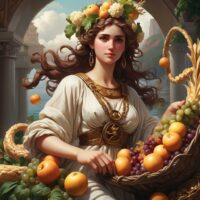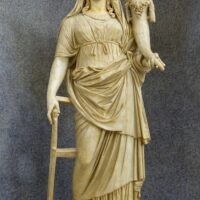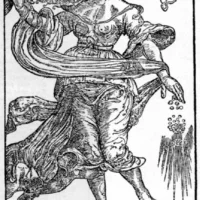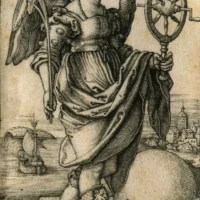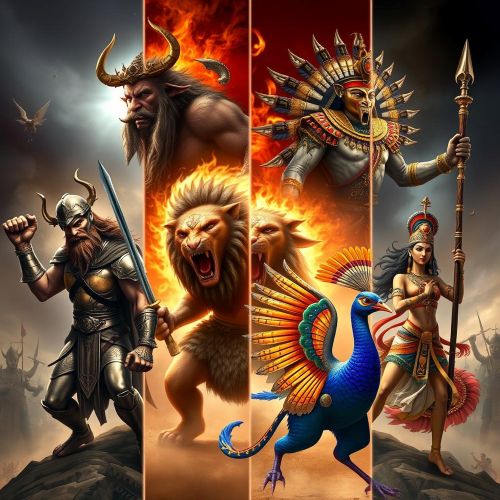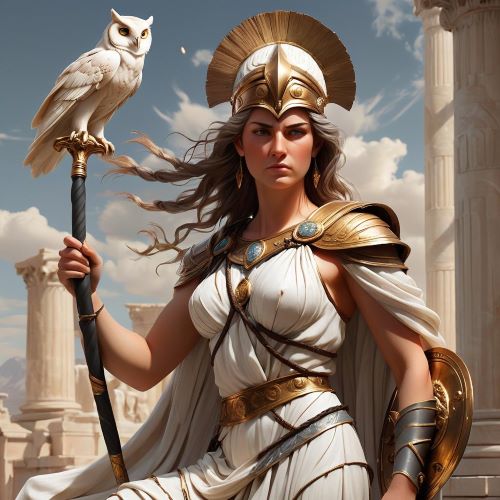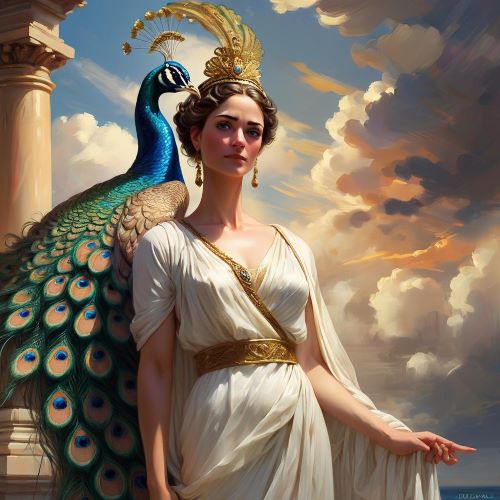Fortuna : Goddess Of Luck
Listen
At a glance
| Description | |
|---|---|
| Origin | Roman Mythology |
| Classification | Gods |
| Family Members | Jupiter (Father) |
| Region | Italy |
| Associated With | Luck, Fortune |
Fortuna
Introduction
Fortuna, the Roman goddess of luck, chance, and fate, epitomizes the unpredictable forces that shape human destiny. Associated with the Greek deity Tyche, Fortuna’s dual nature reflects her ability to bestow both blessings and misfortunes, embodying the inherent uncertainty of life. The Romans deeply revered her, recognizing her influence in all aspects of existence, from the grand rise and fall of empires to the personal fates of individuals. Fortuna’s role as the arbiter of destiny made her a powerful and often capricious deity, whose favor was sought in times of uncertainty and change. Her worship was widespread, with the Romans invoking her guidance and protection across various spheres, including agriculture, warfare, and daily life.
Physical Traits
Fortuna’s physical representation varies, reflecting her complex nature as the goddess of fortune. She is often portrayed as a beautiful, youthful woman, sometimes with a blindfold to signify the impartial and unpredictable nature of luck. A cornucopia, overflowing with fruits and grains, symbolizes abundance and prosperity, while a rudder in her hand illustrates her influence over the direction of human fate. Another common symbol associated with Fortuna is the wheel or sphere beneath her feet, representing the ever-changing and unstable nature of fortune. This imagery, particularly the Wheel of Fortune, has become a lasting symbol of life’s inherent unpredictability. Her depiction with these attributes reinforces her role as a powerful and impartial force in the lives of individuals and societies.
Family
Fortuna’s lineage plays a crucial role in highlighting her significance within Roman mythology. Often regarded as the daughter of Jupiter, the king of the gods, and sometimes linked to Venus, the goddess of love and beauty, this divine heritage underscores her powerful influence over both material and spiritual aspects of life. Her connection to these prominent deities emphasizes her authority and central role within the Roman pantheon. Fortuna’s position as a child of such revered gods solidifies her status and the far-reaching impact she has on the lives of mortals, reflecting the importance of lineage in determining a deity’s power and role in mythological traditions.
Other names
Fortuna, the Roman goddess of luck and fate, is known by a range of titles reflecting her diverse roles and influence. Among her epithets are Fortuna Primigenia, associated with determining the fate of children and creation, and Fortuna Publica, representing the collective luck of the Roman people. Fortuna Coesaris highlights her role in protecting emperors, while Fortuna privata pertains to domestic life. Fortuna Annonaria is linked to agricultural abundance, and Fortuna Virilis relates to women’s fortune in marriage. Fortuna Redux ensures safe returns for travelers and soldiers, and Atrox Fortuna embodies the darker aspects of misfortune. These titles illustrate the goddess’s vast and varied influence across different aspects of Roman life and worship.
Powers and Abilities
Fortuna, the Roman goddess of fortune, embodies a dualistic nature that encompasses both blessings and curses, reflecting the unpredictable elements of fate. Her influence spans beyond financial matters, impacting areas such as warfare, agriculture, and personal endeavors. For instance, generals sought her favor for victory, while farmers prayed for a bountiful harvest. This broad scope illustrates her role in shaping individual and societal outcomes. Fortuna’s unpredictable nature is central to her mythology, symbolizing the chaotic fluctuations of luck and fortune.
Romans engaged in rituals and offerings to appease her, demonstrating their belief in her pivotal role in shaping their lives. Her power to bestow or withhold fortune highlighted the inherent instability of existence, making her a deity both revered and feared. Fortuna’s ability to control luck and destiny permeated all aspects of life, from personal achievements to the fate of entire nations, reinforcing her significance in Roman culture and religion.
Modern Day Influence
Fortuna’s influence persists in modern culture, evident across literature, art, and idioms. The Wheel of Fortune, a central symbol associated with her, remains prominent in various contexts, from tarot cards to casino games. Contemporary art and media frequently draw on Fortuna’s imagery to explore themes of luck and unpredictability. The Italian phrase “La fortuna è cieca” (Luck is blind) underscores her enduring symbolism in popular expressions, reflecting the belief that fortune can be random and impartial. Additionally, concepts such as “fortune favors the bold” highlight the interplay between chance and personal agency. The psychological concept of locus of control mirrors the ancient debate about fate and personal influence. Fortuna’s legacy also extends to modern representations of Lady Justice, reflecting impartiality, and her associations with abundance continue to resonate in discussions about wealth and success.
Related Images
Frequently Asked Questions
What is lorem Ipsum?
I am text block. Click edit button to change this text. Lorem ipsum dolor sit amet, consectetur adipiscing elit. Ut elit tellus, luctus nec ullamcorper mattis, pulvinar dapibus leo.
What is lorem Ipsum?
I am text block. Click edit button to change this text. Lorem ipsum dolor sit amet, consectetur adipiscing elit. Ut elit tellus, luctus nec ullamcorper mattis, pulvinar dapibus leo.
What is lorem Ipsum?
I am text block. Click edit button to change this text. Lorem ipsum dolor sit amet, consectetur adipiscing elit. Ut elit tellus, luctus nec ullamcorper mattis, pulvinar dapibus leo.
What is lorem Ipsum?
I am text block. Click edit button to change this text. Lorem ipsum dolor sit amet, consectetur adipiscing elit. Ut elit tellus, luctus nec ullamcorper mattis, pulvinar dapibus leo.
What is lorem Ipsum?
I am text block. Click edit button to change this text. Lorem ipsum dolor sit amet, consectetur adipiscing elit. Ut elit tellus, luctus nec ullamcorper mattis, pulvinar dapibus leo.

